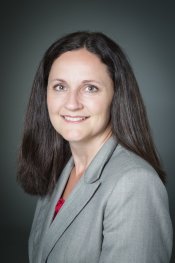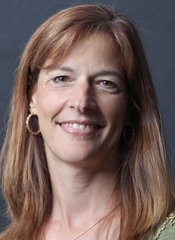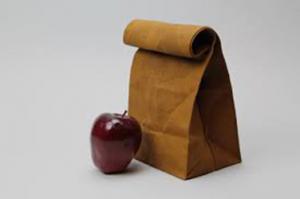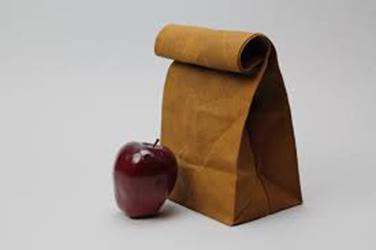Faculty and staff in the Walker College of Business recently completed a series of meetings on topics relating to sustainable business at Appalachian State Univeristy. The series, hosted by Walker College Director of Sustainable Business Jim Westerman, offered faculty and staff from all backgrounds an opportunity to learn from Walker College faculty currently engaged in research, service and teaching relating to sustainable business practice.
 Professor of Economics Todd Cherry spoke March 27, 2015. His talk, "The Problem with Good Policy: Understanding the Opposition to Effective Environmental Policies" explained how many social and economic problems persist, not because of a lack of promising policies, but because of an inability to implement them. Cherry explained:
Professor of Economics Todd Cherry spoke March 27, 2015. His talk, "The Problem with Good Policy: Understanding the Opposition to Effective Environmental Policies" explained how many social and economic problems persist, not because of a lack of promising policies, but because of an inability to implement them. Cherry explained:
The problem is illustrated by the many ineffective attempts to correct market failures with promising policies—e.g., the 2014 repeal of a controversial carbon tax in Australia, the rejection of a cap-and-trade system in the U.S. in 2009, and the aborted attempt to introduce congestion pricing in New York City in 2008. While traditional models provide explanations for such suboptimal outcomes, the work is limited in scope and insights. More recently, research from across the behavioural sciences has offered exciting insights on how individual biases and cognitive limits undermine support for promising policies.
His presentation shared related findings.
 Professor of Management Heather Dixon-Fowler spoke Feb. 27, 2015. Her talk, "B-Corps: An Examination of a Radical Corporate Form and the Impact on Profitability" focused on how Benefit Corporations and Certified B Corporations are increasing in popularity as companies are seeking to simultaneously pursue both socially driven missions and profitable market-based solutions. Dixon-Fowler explained:
Professor of Management Heather Dixon-Fowler spoke Feb. 27, 2015. Her talk, "B-Corps: An Examination of a Radical Corporate Form and the Impact on Profitability" focused on how Benefit Corporations and Certified B Corporations are increasing in popularity as companies are seeking to simultaneously pursue both socially driven missions and profitable market-based solutions. Dixon-Fowler explained:
B-corp legislation has currently passed in 24 states and is being considered in 14 others, allowing an increasing number of entrepreneurs to create business models and growth strategies not available under traditional non-profit structures, while protecting management to pursue social impact goals.
Dixon-Fowler facilitated a discussion about B-corps, a radical corporate form that broadens the legal responsibility of corporations to include social impact. She also discussed the results of a recent exploratory cross-disciplinary (Management and Accounting) study examining whether B-corps can be successful at simultaneously pursuing social impact and profitability, including consideration of the impact of transparency and reporting.
 Professor of Accounting Tammy Kowalczyk spoke Nov. 14, 2014. Her talk, "Let's Talk Turkey – What's the Triple Bottom Line?" suggested that although the term "Triple Bottom Line" originated almost 30 years ago, its meaning is still evolving. Kowalcyzk explained:
Professor of Accounting Tammy Kowalczyk spoke Nov. 14, 2014. Her talk, "Let's Talk Turkey – What's the Triple Bottom Line?" suggested that although the term "Triple Bottom Line" originated almost 30 years ago, its meaning is still evolving. Kowalcyzk explained:
This is primarily a result of trying to attach a financial concept with the notion of measuring non-financial activities, e.g. environmental or social impacts of business operations.
The discussion focused on how the concept of the Triple Bottom Line has been, and could be, used in research for the purpose of exploring sustainability related issues.
 Professor of Economics John Whitehead spoke Sept. 26, 2014 on "Rocky Knob Mountain Bike Park: An Economic Study." He presented on Appalachian State's role in the creation of Rocky Knob Mountain Bike Park and how the unique effort blended the economy, the environment, and the social aspects of sustainability, while providing a valuable learning opportunity for our students. Whitehead presented the economic impacts and a benefit-cost analysis relating to the park, and shared:
Professor of Economics John Whitehead spoke Sept. 26, 2014 on "Rocky Knob Mountain Bike Park: An Economic Study." He presented on Appalachian State's role in the creation of Rocky Knob Mountain Bike Park and how the unique effort blended the economy, the environment, and the social aspects of sustainability, while providing a valuable learning opportunity for our students. Whitehead presented the economic impacts and a benefit-cost analysis relating to the park, and shared:
The Rocky Knob Mountain Bike Park was funded by a grant from the North Carolina Parks and Recreation Trust Fund to the Watauga County Tourism Development Authority. Rocky Knob Park has 7.8 miles of trails, shelters, a playground and picnic area. The Rocky Knob Mountain Bike Park Survey was conducted during 2011 and 2012 by students and faculty at Appalachian State University. Over 300 complete responses were obtained.

